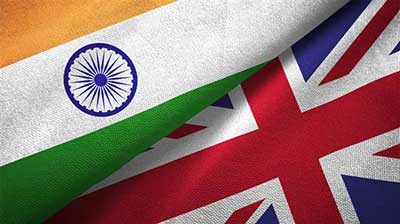Date: 22/03/2023
Relevance: GS-2: Effect of policies and politics of developed and developing countries on India’s interests, Indian diaspora
Key Phrases: Vienna Convention, Pro-Khalistan Movement, , Deputy High Commissione, Article 22, pro-Khalistan protesters.
Context:
- Recently, a group of pro-Khalistan protesters vandalized the Indian High Commission in London, taking down the Indian flag and replacing it with a Khalistani flag.
Key Highlights:
- The incident was condemned by the Indian government, which summoned the “senior-most” UK diplomat, Deputy High Commissioner, and lodged a strong protest.
- The Indian Consulate in San Francisco was also attacked and damaged by a group of pro-Khalistan protesters on the same day.
- The Ministry of External Affairs (MEA) invoked the Vienna Convention on Diplomatic Relations (1961) and reminded the UK Government of its obligations under the Convention.
Background of Pro-Khalistan Movement:
- The Khalistan movement is a separatist movement that seeks to create an independent state for the Sikh community in the Indian state of Punjab.
- The term Khalistan is derived from the words "Khalsa," which means the pure, and "Stan," which means land, to signify a sovereign Sikh homeland.
- The roots of the Khalistan movement can be traced back to the partition of India in 1947, which created the separate countries of India and Pakistan.
- During this time, the Punjab region was divided between the two countries, with the majority of Sikhs living in India.
- In the following years, many Sikhs felt that their community was marginalized and discriminated against by the Indian government, which they believed favoured the Hindu majority.
- The Khalistan movement gained momentum in the 1970s and 1980s, led by Jarnail Singh Bhindranwale.
- Bhindranwale and his followers occupied the Golden Temple in Amritsar, the holiest shrine of the Sikh religion, in 1984.
- The Indian government responded with a military operation to flush out Bhindranwale and his followers, resulting in a violent confrontation and the deaths of hundreds of people.
- The aftermath of the Operation Blue Star led to a rise in militant activity in Punjab and across India, with many Sikhs taking up arms against the Indian government.
- The movement was dealt a severe blow in 1995 when the Indian government launched a crackdown and arrested many of the militant leaders.
- Since then, the Khalistan movement has been relatively dormant, although there are still some Sikh separatist groups operating in India and abroad.
- The Khalistan movement remains a contentious issue, with many Sikhs calling for greater autonomy and recognition of their distinct identity within India.
- However, the Indian government maintains that the country is a secular democracy and that any attempt to create a separate state based on religious lines is unacceptable.
What is the Vienna Convention and what does it say about the obligations of a “receiving State”?
- The Vienna Convention on Diplomatic Relations (1961) is a treaty that provides a framework for the establishment, maintenance, and termination of diplomatic relations between independent sovereign states.
- It codifies the concept of diplomatic immunity, which grants privileges to diplomats that enable them to perform their functions without fear of coercion or harassment by the host country.
- The Convention affirms the concept of “inviolability” of a diplomatic mission, which is one of the cornerstones of international diplomacy.
- The UK is the host nation where the Indian High Commission is located.
- As per the Vienna Convention, the receiving State has some basic obligations towards the diplomatic missions it hosts on its sovereign territory.
- Article 22 of the Convention deals with obligations with regards to the premises of the mission.
- Part 2 of this article states that “The receiving State is under a special duty to take all appropriate steps to protect the premises of the mission against any intrusion or damage and to prevent any disturbance of the peace of the mission or impairment of its dignity”.
- Therefore, the security of any High Commission or Embassy is the responsibility of the host nation.
- While diplomatic missions can also employ their own security, ultimately, the host nation is accountable for security.
- The fact that protestors were able to climb the walls of the High Commission premises indicates a breach of the UK's obligations under the Vienna Convention.
Way Forward:
- It is important for the Indian government and the UK government to engage in constructive dialogue to address the concerns of the Sikh community and prevent any further incidents of violence or vandalism.
- Both countries should reaffirm their commitment to the principles of the Vienna Convention and ensure the security and inviolability of diplomatic missions.
Conclusion:
- The Vienna Convention on Diplomatic Relations (1961) is a crucial treaty that codifies the principles of international diplomacy, including diplomatic immunity and the inviolability of diplomatic missions.
- The recent incidents of vandalism at the Indian High Commission in London and the Indian Consulate in San Francisco highlight the need for host countries to fulfill their obligations towards diplomatic missions, including ensuring their security.
- Breaching these obligations can have severe implications for bilateral relations between countries, which underscores the importance of the Vienna Convention in maintaining peaceful and stable diplomatic relations among nations.
Source: The Indian Express
Mains Question:
Q. Analyze the significance of the Vienna Convention on Diplomatic Relations (1961) in the context of recent incidents of vandalism at the Indian High Commission in London and the Indian Consulate in San Francisco. (250 words).







